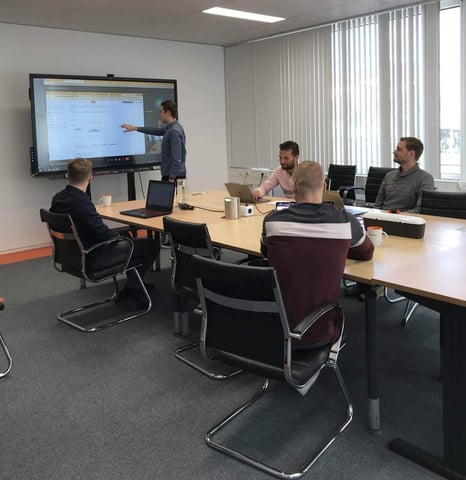New Revenue Management software solution
Alongside dedicated clients of Maxxton, we are working on a new software module through which machine learning algorithms help dynamic pricing of accommodations.

The algorithms take into account the most important parameters. This way the revenue management departments gain insights, get clear suggestions and monitor performance.
Update November 2022:
Revenue Manager page live.
- Overview of historical and expected revenue
- Segmenting/optimising revenue per channel
- Working with specific budgets in time (targets)
- Recommendation engine based on forecasted demand
Dashboarding & Insights
In a dynamic and data-driven world, it is difficult to keep an overview. That is precisely why intuitive and clear dashboards are required. Revenue managers need to have direct access to the most relevant and real-time information; starting with occupancy and revenue. Additionally, you need to easily spot outliers and act on those; why is a collection of accommodations outperforming the budget while others are not?
Forecasting
Data comes forth from our data warehouse. The great advantage is that external data, such as Google Analytics 360 can be easily connected. Moreover, it is possible to make predictions from this entire data lake. You can look into different types of optimisations. For instance, sometimes it is wiser to choose a higher occupancy in the low seasons, while maximising the revenue in the peak season.
Revenue Management aligns with customer behaviour
In general, guests do not search for a specific unit. However, they do search for a region, a location, or a holiday park. Hence, the specific amenities are important here, for example, a swimming pool, a pet-friendly accommodation. When the rate of a specific unit, such as a 4-person cottage is increased by 15%, there is a good chance that a 6-person cottage will quickly become more appealing. Therefore, it is smart to create clusters of accommodations, all of which adapt to rate changes. With the collections, you have representative datasets of sufficient size. It helps with corrections for the effect of cannibalisation and price parity (e.g. if a 4-bed A is very expensive, the comparable, but cheaper, 4-bed B will be chosen more often). It also makes rate changes easier to manage.
Answering the important questions
Maxxton’s team is working hard to answer these questions:
- What happened?
- What did not happen?
- What will happen?
Recommendation engine
When 60% of the accommodations are rented out, it is important to figure out how the remaining 40% of the accommodations can be rented out as favourably as possible. We create a recommendation engine to assist. The recommendation engine will help by forecasting to enter the rates most advantageous as possible, where different goals can be the starting point.
- Maximum revenue
- Maximum occupancy
- Gain insights on performance vs. budget and other periods




